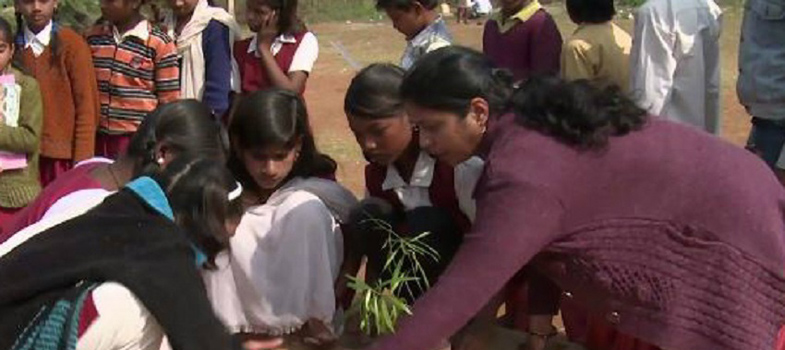5 Modelling principles and practices
Shifting from a teacher-centred approach to the pedagogy advocated by the NCFTE (2009) is challenging. Simply telling teachers to adopt active approaches to learning is not effective – they need to experience the approaches for themselves.
Teacher educators play an important role in helping teachers to acquire the knowledge and, more importantly, the skills to use the approaches needed. An effective way to teach teachers about any of the approaches mentioned so far is to model them in your own work with teachers. By modelling the principles and pedagogy underpinning TESS-India, the teachers or student teachers that you are working with can experience the benefits of active learning. Even though you may be working with a large number of teachers or trainees, you can promote active learning by using a variety of different types of questions, giving students thinking time or the opportunity to talk about their ideas in pairs before responding.
When teachers are actively engaged – doing, sharing, discussing, writing, solving problems – you have the opportunity to watch and listen, and intervene and encourage if necessary. You will find out how they are responding to new ideas and ways of teaching, what they are thinking, and what they find difficult or useful. This will give you the opportunity to adapt your approach and be more effective in meeting their needs and context-specific requirements.
The next activity focuses on how active learning can be modelled through working with teachers. The perspective is from someone working with pre-service teachers, but the ideas apply just as well to in-service training.
Activity 2.5: Modelling the pedagogy for active learning
- Imagine that a young colleague has come to you for advice. She is planning a session on ‘using group work in teaching your subject’ for 50 pre-service primary school teachers. She has come to you to ask for some suggestions about how she could make the two-hour session interactive.
- What suggestions would you make about the activities that she could use?
- Summarise your advice and the subject to which it relates in around 100 words. Share your advice with a peer or colleague and ask for their feedback. What thoughts or suggestions do they have? Do you agree with their advice? How effective might it be?
4 Promoting learning through active participation
